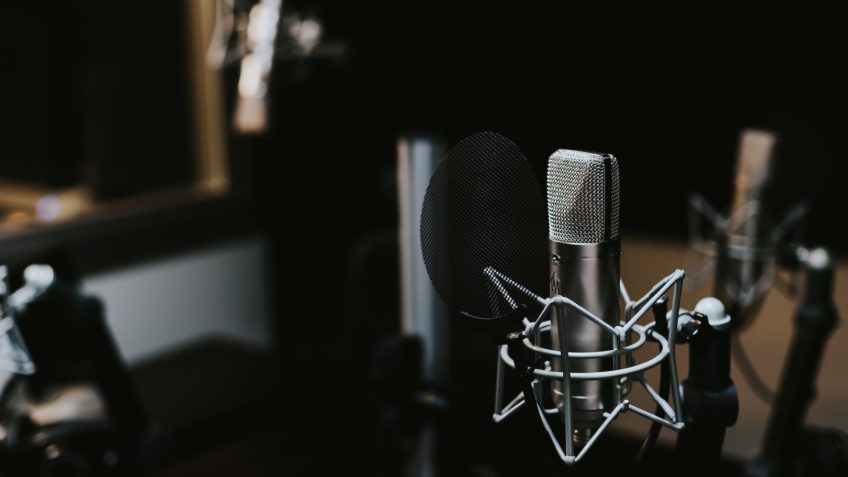
Clashes rescue sampling, audio sharing platforms and the beginning of streaming, write founders of “The Block Point”
Beeple’s critical and creative version of the song “Ghostwriter977”, which would be a Drake & The Weekend collaboration, places the rapper’s head in a kind of test tube surrounded by studio equipment. The song was produced by artificial intelligence and was never actually recorded.
The famous digital artist named the work as “AI Drake In The Studio”. The version was posted on Instagram last Monday (April 17, 2023). At that point, the track that brings vocals from the consecrated musicians already accumulated more than 20 million views. streams in less than 48 hours on major platforms.

Beeple’s creative critique for the song “Ghostwriter977” powered by artificial intelligence. In the image, rapper Drake’s head in a kind of test tube surrounded by studio equipment
After putting the viral power of social networks to the test, and being responded to, Ghostwriter, responsible for the collab with artificial intelligence, was challenged by Universal Music Group.
The offensive arrived in the form of an e-mail to the services of streaming. Absolutely, the record company, according to the Financial Timeswarned: “We will not hesitate to take action to protect our rights and those of our artists.” Also on Monday (April 17), Spotify, Apple Music, Deezer and Tidal dropped the track, which had not even mentioned Drake or The Weekend in the description.
Despite the momentary victory, the blitzkrieg carried out by Universal will definitely not stop the 4th world and private war of the recording companies against the movements of disruption of this industry. Although in the past they had other targets, today, the enemy to be fought is artificial intelligence.
As Andy Chatterley, founder and CEO of Muso, a technology company that provides anti-piracy services and market analysis to entertainment, has rightly recalled, from a production standpoint, AI is a lot like MIDI or the sample of the 80’s.
“Nobody could ever tell the complete list of things that influence artists or their art. All we know is that when something really connects, the sum is greater than its parts. AI replication in music, therefore, is not a simple copyright issue, rather it is a new form of interpolation. However, like sampling, it will likely lead to a requirement for some form of rights holder release.” pondered Chatterley
O sampling uses beats or melodies from pre-existing music in a new composition. At the time, this process took snippets from vinyl records and put them into a production.
Samplear it was not just a technique, but a cultural movement that gave birth to hip hop and reshaped the recording industry. The case of rapper Biz Markie as the biggest legal battle over the sampling and the use of intellectual property rights.
More than 40 years later, the method inspires decentralized music platforms such as Arpeggi, which is rebuilding music production through the blockchain. Through its barrier-free ecosystem, anyone can create, upload, publish and mine sounds and songs for other producers to use through remixing and sampling.
Going through the 90s and arriving in the early 2000s, we are faced with the era of peer-to-peer (p2p) file sharing.
The outbreak of digital piracy is remembered by Stefan Ellenberg, consultant and lawyer in intellectual property rights, to make an allusion: voice-trained AI revives a modern moment of Napster, LimeWire or Winamp. For the consultant, if the tool is being used under the guise of disruption to expropriate creatives and take advantage of their achievements without permission, then a red line has been crossed.
Some legal considerations in Germany, the 4th largest music market in the world, serve as a parameter for Ellenberg’s arguments. According to the country’s regulations, there is a general right of personality. He says an author or performing artist need not accept it if the incorrect impression was created from the work or recording coming from another creator.
“Training an AI with sound recordings of artists available on the internet is not objectionable, as long as the recordings are legally accessible and there is no stated usage reservation accordingly. Notably, voice as a general personality attribute must also be protected from unauthorized commercial use.”defendeu Ellenberg.
The legal discussions we will follow about AI music go back to the past of audio sharing platforms: they reached millions of people and had their short lifespan of less than a decade crushed by a flood of lawsuits. When, finally, the record companies won the battle against what they called “large scale copyright infringement”in the early 2010s, the streaming was preparing to take control of the digital market.
The IFPI (International Federation of the Phonographic Industry) report found that digital music represented, as early as 2010, 29% of companies’ total revenue. At the time, 400 legal services, with more than half of them concentrated in Europe, were registered. Meanwhile, Spotify’s 750,000 paying customers validated the subscription format. It was a sign of the new times.
A little over a decade later, the protagonists of digital piracy are reborn for a new business model within the 3rd internet revolution. LimeWire, Napster and Winamp returned in 2022 with the promise of revolutionizing music through Web3 without illegality and with the support of the communities built in the past.
While we witness the imminent war to be unleashed from the explosion of music created by the machine, we are already following another battle: record companies X streaming. This conflict also has the Universal Group as the leader. At the beginning of the year, the president of the group condemned the current format, and asked for a new model for the industry. He even pointed to emerging technologies and better connections between artists and fans as solutions.
Copyrights and their legal reproduction and the due remuneration of artists, in the end, are at the heart of all clashes that occurred in the music industry in times of current technological revolution. Now we just have déjà vu.
“Whether this is really AI leads us into a really interesting philosophical and, inevitably, legal debate. Finally, if musicians and/or content creators are being used as a data source for an AI model, should they be compensated?”questiona Andy Chatterley.
The question left by the CEO of Muso is yet another provocation about how record labels, artists and others stakeholders will need to deal with the AI phenomenon. And to curtail an innovation, for him, is to decree future defeat:
“From a copyright perspective, labels will have to embrace AI and be proactive rather than reactive. Instead of trying to kill the AI, they’re going to have to find a way for the AI’s music to coexist with their existing catalog.”analyzed.
Source: https://www.poder360.com.br/opiniao/musica-criada-por-ia-revive-guerra-de-gravadoras-contra-inovacoes/

